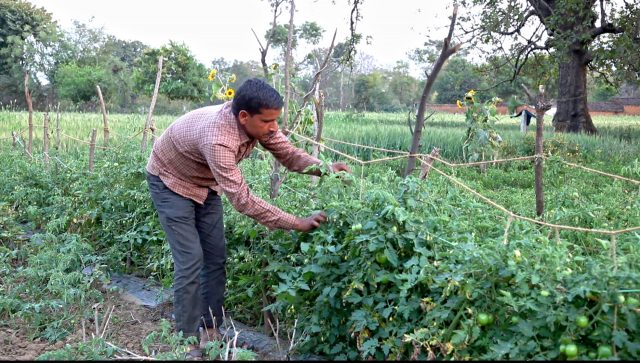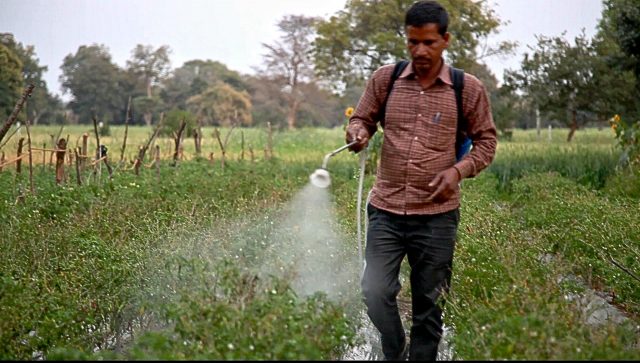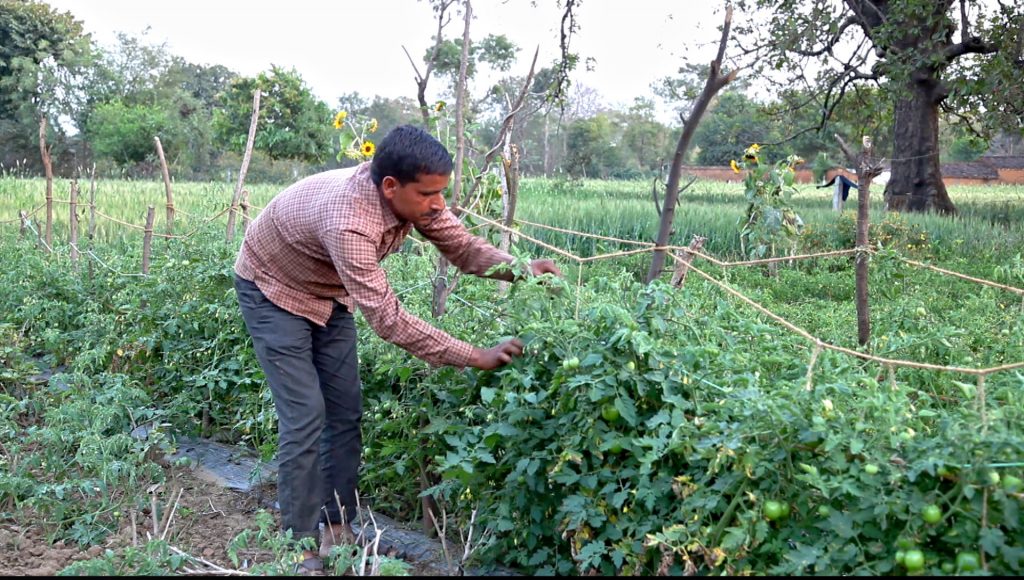
Seven years ago, Amar Chandra borrowed Rs. 4000 (approx. 52 Euros) from a local moneylender for farming with a hope that he would be able to return the amount after the harvest. But due to a drought that year, his crops didn’t do well. His inability to pay the debt and the mounting interest on it forced Amar Chandra to migrate to Delhi, nearly 580 km away from his village. He began to work there as a labourer.
But the job was irregular. Tired of an uncertain future, he came back to his village, a year later. However this time he wanted to do something new. “Through the agriculture department and Krishi Vigyan Kendra, I found out about organic farming methods. Gradually I adopted some of the organic practices, but was not successful initially,” he said.
Around the same time, Amar Chandra came in contact with Parmarth Samaj Sevi Sansthan, Welthungerhilfe’s partner in the region. During a discussion, organised by Parmarth in his village, on organic farming and its impact on environment and health, he shared his concerns. Parmarth began to provide him guidance and technical support on organic farming. The project team also gave him a five-day training on planning and management of organic farming.
 Amar uses biopesticides and biomanure on his farm
Amar uses biopesticides and biomanure on his farm
Today, Amar Chandra does farming using System of Vegetable Intensification (SVI), a technique that provides higher yields while using less water and inputs. He practises organic farming methods such as green manure, biopesticides as well as adopts techniques like Integrated Plant Nutrient Management (IPNM) to enrich the soil and Integrated Pest Management (IPM) to repel pests. “I have learned to make organic manure like Jeevamrit and organic pesticides (Amrit Pani) on my own using locally available materials like cow dung and cow urine and I use these on my farm now,” he said.
Further, he has adopted drip irrigation, a technique that uses water efficiently. He also does mulching and staking and grows crops in the greenhouse and that has resulted in a good quality yield.
In the current year, Amar Chandra has sown tomato crop on his field by SVI method and earned a profit of more than 3 lac rupees (approx. 3900 Euros). He firmly believes that if any farmer seriously adopts organic farming with SVI technique then s/he will be able to earn a substantial profit and will not have to migrate to cities.
He now actively promotes organic farming and provides training and handholding support to other farmers.
Building Grassroot Civil Society
The Water Warriors: Women lead the way in Bundelkhand




